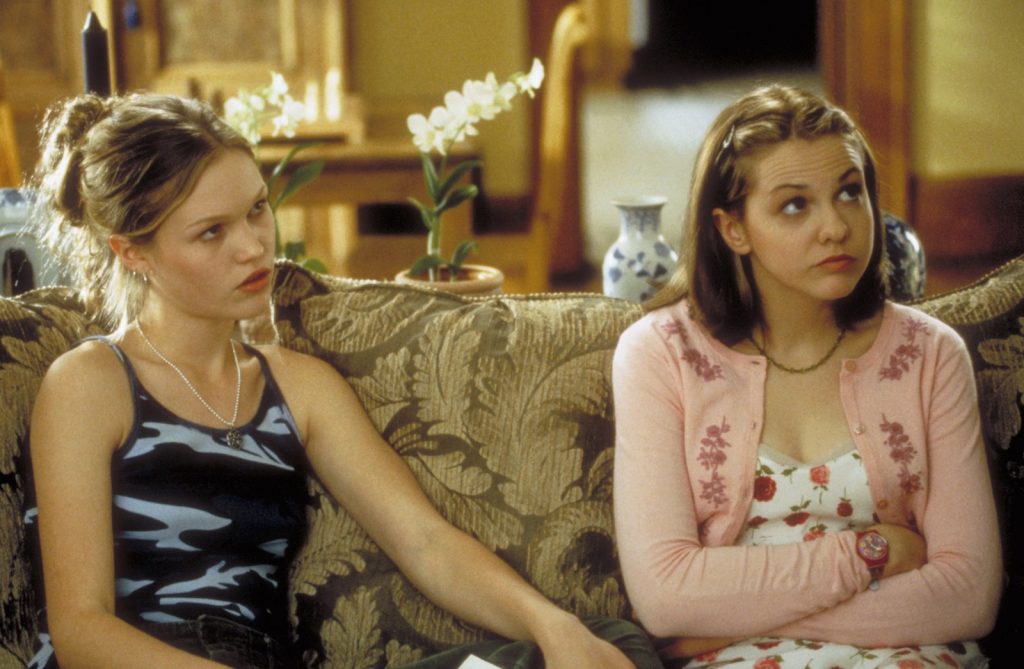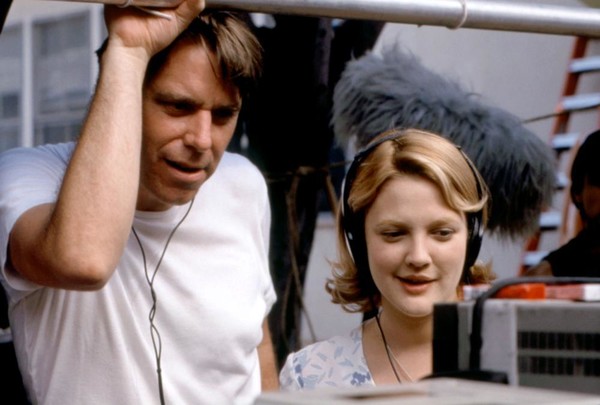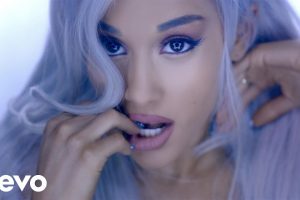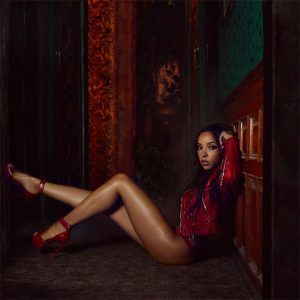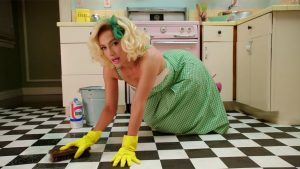While there has already been plenty to be excited about in 2019, few musical or pop cultural events have made the impact of the Jonas Brothers’ reunion—especially since, more than anyone else, boy bands can rely on the high-pitched, nostalgic screams of their fans for success, considering it’s been a decade since their last album.
It is far from unheard of for boy bands or girl groups, which are almost always marketed towards kids or teenagers, to reunite or go on reunion tours—the Backstreet Boys, while never having officially broken up or gone on a lengthy hiatus, are one of few boy bands who have maintained commercial success long after their peak. In fact, their most recent studio album released this year, DNA, debuted at number one on the Billboard 200 chart in the United States and became the second largest gap between number one albums on the chart, at 19 years. Additionally, they became the first American boy band to top the U.S. charts in three different decades. The difference now, of course, being that the Backstreet Boys can no longer be considered a boy band—all of the current members are fully grown men, making it categorically impossible for them to still be classified as such. And yet, they still owe a large portion of their continued commercial success to the audience that they were marketed to as a boy band—young women. The Jonas Brothers, the famed three-piece family group that rose to fame on Disney Channel in the mid to late 2000s, officially reunited this year to release a new album—their first in ten years. The difference between the Backstreet Boys and the Jonas Brothers, however, is that the nostalgia of the Jonas’ return seems calculated—a cross between catering to the now-grown Disney audience that worshipped them as teenagers, and a mainstream pop market that still seems to bow down at the feet of grown men, and seek to tear down grown women.
Boy bands and girl groups have the special privilege of being considered among the most fabricated and manufactured of all pop music—the groups themselves are almost always created by talent managers or record labels, and even the strongest amount of chemistry between group members cannot distract from the fact that it leads them to appear, at least on a base level, unauthentic. Pop music, after all, is designed to sell, and when you are designing a girl group or boy band in this very way, selling out becomes quite literally the biggest priority. Boy bands in particular, however, have the distinct yet unfortunate angle of using the patriarchy to their advantage: since they are undoubtedly always marketed towards young women, chances are they are going to have movie-star good looks and at least some form of talent to bank on. In a culture and society that still very much caters to men and asks so little of them just because they are men, boy bands can continue to prosper again and again. From the Jackson 5 in the 1960s, to the Backstreet Boys and ‘NSYNC in the late 1990s, to the Jonas Brothers in the 2000s, and One Direction and 5 Seconds of Summer in the 2010s, boy bands can try very little and still be an enormously marketable opportunity—as long they’ve got their looks with perhaps a trendy haircut and some form of talent, their fate is almost immediately sealed: because they’re men. Yet, if we apply this same formula to some of the best remembered girl groups from the 2000s and beyond, almost all have crashed and burned: the Pussycat Dolls, Danity Kane, or Fifth Harmony. In this regard, it’s almost shocking that it took the better part of six years for the Jonas Brothers to execute a reunion, since not only do they have the impeccably simple formula of a boy band turned group of grown men under their belts, but they also have another angle that the fandoms of ‘NSYNC or the Backstreet Boys lack: Disney Channel nostalgia from their post-millennial fanbase.

- The reunited Jonas Brothers on The Late Late Show with James Corden in March 2019 (Source: Getty Images/CBS)
Let’s get one thing straight: the Jonas Brothers have always been talented, and they have always been very handsome, with all three managing to maintain and improve upon their charm and good looks as they grew older. But what makes their 2019 reunion seem all the more calculated and playing to our patriarchal culture is that it didn’t feel like they even had to do much at all to be successful the second time around. I don’t intend to devalue the long hours of work in the studio recording new material, the long hours spent planning music videos and promotional press tours, or anything else that goes into an artist’s mainstream release. But when the Jonas Brothers were here the first time, on Disney Channel, they weren’t soaring to the top of charts. Their work performed modestly at best, and chart performance didn’t really need to matter to their management or label since they knew they had already soared into the hearts of millions of teenage girls and young women across the world. They didn’t need to worry about numbers on charts as much as they needed to worry more about moral clauses and messages they would be sending to their young fanbase. As some may recall, during their time as Disney stars, the Jonas Brothers prominently wore purity rings to symbolize and emphasize good values and establish themselves as good role models. This time around, as numerous publications have already reported, the Jonas Brothers are discussing the details of their time on Disney Channel more openly since they are no longer tied to the conglomerate (they have signed with Republic Records and Universal Music Group for their new releases this year).
When the reunited group appeared on The Late Late Show with James Corden in March, Nick stated that he took pride in wearing the ring until he watched old interviews years later and lamented that he sounded like a robot. Joe stated that it was easy for them to say and think they believed those things when they were 12, since they were regular churchgoers and their father was a pastor, but by the time they were older and on Disney Channel, it was too late for them to take any of it back, and it was a firm part of their image. Joe also explained in an essay for New York magazine in 2013 that it felt like they were “in some cult and that we’re these little staged Mickey Mouse kids,” which upset him at the time because that’s never what they believed the group was about. It’s indeed easy to agree that it’s unrealistic and incredibly conservative to ask young teenagers their stance on premarital sex and expect them to maintain that attitude until adulthood. Perhaps it is for these reasons that, during Nick’s attempt at a solo career just a few years ago, he quickly became labelled a sex symbol, and stated in 2015 that he doesn’t see himself as such but it’s fine if others do since his only goal was to “make sexy music and push the envelope a bit.” Even Joe—whose own solo career was significantly less successful in comparison to Nick’s—achieved a top 10 hit with his funk-pop band DNCE in 2015, “Cake by the Ocean,” whose lyrics were definitely suggestive and laced with double entendre. True, maybe we can see that the Jonas Brothers have “worked hard to shed their once-wholesome image,” as W magazine puts it. But if we can speak fairly and realistically for just a moment—it really didn’t take much at all for the group to shed their wholesome image from Disney Channel. At least not nearly as much as Miley Cyrus, whose own sorted history speaks for itself at this point, or even other Disney stars from the same and prior eras as the Jonas’: Hilary Duff, Ashley Tisdale, or even Selena Gomez—who, just the same as any of the aforementioned women, is still trying to find her footing as an adult artist. If we compare on even the smallest of scales, how hard was it for the Jonas Brothers to find adult success, since they all managed to age wonderfully and beautifully into handsome, grown men? Purity rings and wholesomeness aside, did it really take much for them to find continued success as adults? Was it as hard for them to leave their Disney Channel image behind as it was for Miley Cyrus to break free of Hannah Montana? Did we cringe and spew hatred at Nick Jonas when he posed provocatively and sang that he still gets jealous, in the same way that we did when Miley Cyrus said she can’t be tamed or started licking sledgehammers? The answer to all of these questions is an overwhelming no, merely because they are still handsome, marketable men in a patriarchal industry—which makes them just as marketable in 2019 as they were in 2009, an advantage that is simply unavailable to most female teen stars, since that very industry that allows men to prosper no matter what still refuses to let young women age. Hilary Duff, who was undeniably a much bigger star in the early to mid 2000s than the Jonas Brothers ever were, has not been allowed the same level of comeback success, simply because she’s a woman. Why did “Sucker”—the Jonas’ comeback single—hit number one on the Billboard Hot 100 chart but any number of Duff’s attempts at a comeback single, from “All About You” to “Sparks,” flop miserably? Management and promotion certainly plays a part in this, but cultural reactions and interpretations matter more. Did entertainment news outlets and popular culture react with the same level of disdain for the Jonas Brothers losing their purity rings merely because it was unrealistic as they did when Miley Cyrus acted outrageously as she could for years, all to prove to anyone who would listen that she’s not Hannah Montana anymore? So when we say that the Jonas Brothers have “worked hard” to shed their once-wholesome image, did they really? The answer, again, is no.

- New promotional image of the reunited Jonas Brothers, 2019 (Source: Peggy Sirota/Rolling Stone)
Aside from the fact that “Sucker” and “Cool”—the Jonas Brothers’ two new singles—are catchy, they don’t appear progressive whatsoever. Without the appearances from their respective wives and fiancées in the latter’s music video, with a bit less glitzy production and “adult” lyrics, and maybe with Nick and Joe showing a bit less chest hair, they could have easily been songs from their original run. Even the Backstreet Boys, who have successfully managed the transition from boy band to group of grown men, understand the importance of progressing and trying new things. “Sucker” and “Cool” don’t appear to show any real depth beyond displaying the rugged good looks of its members (Nick in particular, let’s just be honest), and again, clearly they don’t have to. The Jonas Brothers don’t need to display depth or growth with their reunion because they’ve proved that they still fit the same formula that applied to them when they were a boy band, and that will undoubtedly ensure their success because they’re men and they’re pretty. Not to say that all pop music has to have a darker, more mature side—sometimes you just need a happy-go-lucky song you can dance to—but one would think if you are given such a platform with a formula for instant success, perhaps you could do more with it. Yes, maybe more is coming; we don’t know yet. But in the current pop music landscape where women have to fight to be heard and prove themselves worthy of whatever it is they are after; the Jonas Brothers’ commercially successful reunion just feels patriarchal. Not because they are untalented, but because the same level of commitment, resilience, and versatility that is demanded of female pop stars is not asked of them in the least. Even if they weren’t extremely nice to look at, both as teenagers and grown men, they still would find renewed success so much easier than any number of female pop stars of the same caliber. The same can be said if we compare other boy bands to girl groups. When Zayn Malik left One Direction, I seem to remember tears were shed and hearts were broken, but supporting both Zayn as a solo artist and One Direction for their last album without him did not appear like that much of a conundrum. But when Camila Cabello left Fifth Harmony, battle lines were drawn within the group and the fandom, vicious and bitter statements were made, and claws came out. Why is it that female pop stars are not allowed the same freedom and platform for success as male pop stars? Why is it that the Jonas Brothers can get their first number one single on the Billboard Hot 100 without even trying that hard but Hilary Duff—who again, at her peak, was a much bigger star that any Jonas Brother ever was—couldn’t find the same renewed success with her 2015 comeback album Breathe In. Breathe Out.? It’s because mainstream media still caters largely to our patriarchal culture, making it easy for male pop stars to do the bare minimum and still have thousands of screaming fans at his feet, but simultaneously making it unnecessarily hard for female pop stars to do the bare minimum and expect the same results.
Maybe it’s because kids who grew up watching Hilary Duff on Disney Channel were conditioned to believe that she was just a teen pop star whom everyone would outgrow, while fascination with the Jonas Brothers as they grew up never withered. Their reunion could not have come as a shock to even the most culturally ignorant of people, as fans have campaigned for their reunion for years. Yet when female pop stars from similar eras release comeback albums, like Hilary Duff or even most recently Ashley Tisdale, it feels as though their new music is tossed aside and does not see nearly as much mainstream commercial success as it should. Tisdale, just like the Jonas Brothers, is also gearing up to release her first studio album in ten years. Titled Symptoms, the album is said to lyrically explore the symptoms of anxiety and depression, bringing such a relevant and lively angle to pop music. But despite the fact that the album is being released by an independent label (Tisdale actually has more social media followers than her label does), it’s easily predictable that Symptoms won’t see nearly as much commercial success as the handsome Jonas Brothers singing they’re a sucker for you. I don’t wish the Jonas Brothers themselves any ill will; they are talented and they are handsome. They are also planning to release a documentary with Amazon Studios chronicling the road to their reunion. I just wish we could ask more of male pop stars like them so that everyone else wouldn’t have to try as hard to get not nearly as far as they have.





